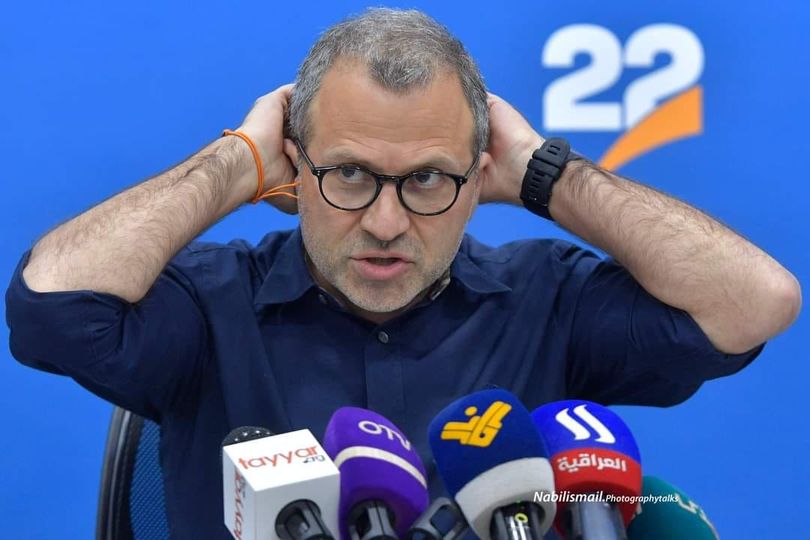مايكل يونغ/ذا ناشيونال: ترى هل صفقة الغاز البحرية بين لبنان وإسرائيل ستدعم إرث عون وتحسن وضعية وريثه جبران باسيل؟
Will the Lebanon-Israel maritime gas deal shore up Aoun’s legacy?
Michael Young/The National/October 19/2022
The answer to this question will determine the political fortunes of the Lebanese president’s successor.
Less than two weeks away from his scheduled departure from office, Lebanese President Michel Aoun is insisting that Lebanon’s recent agreement with Israel over maritime boundaries represents a personal success for him. The agreement paves the way for Lebanon and Israel to exploit their respective offshore gas reserves – or rather their presumed gas reserves – in clearly defined exclusive economic zones.
Certainly, Mr Aoun and his advisers manoeuvred well to ensure that they were at the heart of the negotiations with the US mediator, Amos Hochstein. The accord means the train wreck of Mr Aoun’s presidency, during which Lebanon’s economy crashed and poverty spread throughout society, will not end with a whimper. However, beyond that, it’s not apparent that the agreement changes much for the president.
For Mr Aoun, two major issues prevail, and both involve the political future of his son-in-law Gebran Bassil. First, the president hopes that his role in securing a deal with Israel will have positive repercussions domestically, which will provide Mr Bassil with greater latitude to impose his priorities on the next president, even as it is highly improbable that Mr Bassil will be elected himself.
Second, the president deep down also believes that his signing off on a deal mediated by the Biden administration will make it more likely that the US will lift its sanctions on Mr Bassil. He was sanctioned in November 2020 for corruption. The Aounists, however, believe that the real motive was Mr Bassil’s closeness to Hezbollah. Therefore, presumably the president’s facilitating an agreement with Israel, and Mr Bassil’s approval of this, may distance him from the party and its anti-Israeli militancy.
All these assumptions are illusory, misleading, or based on false premises. For Mr Aoun to assume that the deal with Israel will reverse the negative views of his presidency at home is wishful thinking. It is not only unclear how much gas Lebanon has, the price of its extraction, or how it will be sold, but most Lebanese do not associate the deal with Mr Aoun alone. There was agreement only once the president, parliament speaker, and prime minister sang from the same song sheet, after much discord.
Nor does Mr Aoun seem aware that the magnitude of the economic breakdown is such that nothing he does will change the minds of his fellow citizens. He has been a major source of national dissension (though he was hardly alone), and therefore one of those leaders whose incompetence during a time of crisis only contributed to impoverishing many more Lebanese since the start of the collapse in October 2019.
Mr Aoun’s hope that the success of the maritime deal will give Mr Bassil more leverage to impose his conditions on Lebanon’s next president is misleading. Since Mr Bassil realised that he had no chance of succeeding his father-in-law, he has sought to foist his conditions on any new president, and use this as a springboard for his own candidacy in six years’ time. Mr Bassil feels he can do so, as a new president will need the endorsement of Mr Bassil’s Christian bloc to secure his legitimacy.
However, this equation would have held whether a maritime deal had been agreed or not. It was no coincidence that on the day that Lebanon gave Mr Hochstein its formal approval for the deal with Israel, Mr Bassil was making the rounds with a new initiative on the presidency. The gist of his plan is that the search for a candidate must take place under the sponsorship of the presidency and the Maronite patriarchate, and that a consensual candidate must be chosen who is representative.
To Mr Bassil, representativeness means enjoying the support of large Christian blocs in parliament. Since the Aounists’ main Christian rival, the Lebanese Forces bloc, has said that it would support a candidate who confronts Hezbollah, the Aounists were intimating that by backing a consensual candidate (an option most political parties favour), they alone could grant him Christian validation.
The maritime deal has not strengthened, or weakened, Mr Bassil’s hand in that regard. It is also probably true to say that it has not affected the attitude of the Americans with regard to sanctions on him either. While Mr Bassil had long irritated Washington and numerous Arab countries over his alliance with Hezbollah, he was sanctioned under the Global Magnitsky Human Rights Accountability Act. The act punishes those engaged in corruption or human rights abuses, and for the US to remove this designation it would have to justify such a step publicly.
For Washington to designate someone as corrupt involves a long process of confirming this accusation. The Treasury Department does not employ the weapon lightly, and US officials have privately revealed in the past that efforts to sanction individuals close to Mr Aoun were shot down by Treasury because the evidence was lacking. It seems absurd to assume that Mr Bassil will be magically declared innocent because his father-in-law pushed for a deal that was in Lebanon’s interest.
At best, the maritime deal is merely a consolation prize for Mr Aoun, if it means that he can exploit it in his and Mr Bassil’s domestic political rivalries. However, it certainly does contrast with years of dismal performance, when Mr Aoun sacrificed all on behalf of his son-in-law. He will exit on a positive note, but he will never quite grasp that, for most Lebanese, the operative word here is “exit”, not “positive”.




















